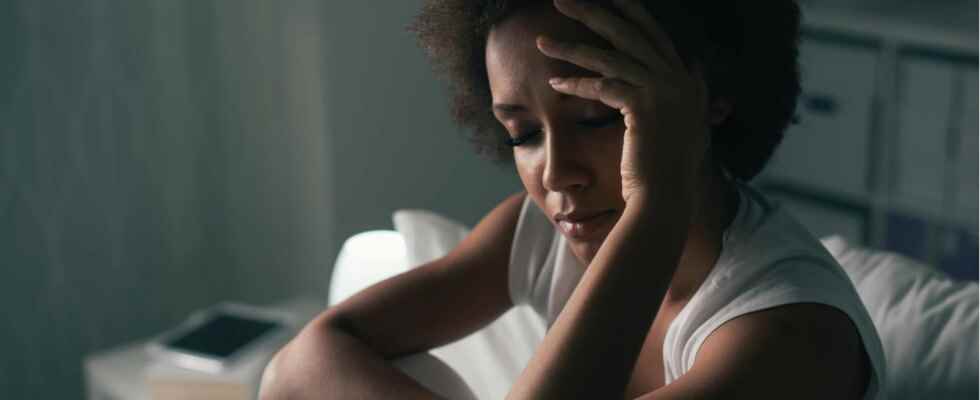Sleep Perception Gap
Why we often sleep more than we think, even on bad nights
© StockPhotoPro / Adobe Stock
Sleep disorders can take a toll on us both physically and mentally. After a sleepless night, we often feel particularly drained. But how likely is it that we really lied up all night? Rather unlikely, say sleep experts.
Most of us know how stressful it can be tossing and turning wide awake at night. Sleep disorders can severely affect our physical and mental health. However, a certain phenomenon often makes it even more difficult for us – the so-called “sleep perception gap”, also known as “sleep misperception” or “sleep misperception”. If we suffer from insomnia anyway, we often believe that we sleep less than we actually do. In our perception we lay awake all night – although in reality we slept for a few hours.
If our brain doesn’t shut down properly, we don’t realize we’re sleeping
This phenomenon is related to how our brain works, because it doesn’t switch off immediately when we doze off. The sleep therapist Dr. Lederle says to the British glamor magazine: “When we fall asleep, one area of the brain usually shuts down first, the others gradually follow. But it can also happen that one half of the brain shuts down and the other stays awake.” This happens, for example, when we sleep in a new environment where we cannot fully relax, such as a hotel. We have our survival instincts to thank for this overly cautious mode. Because in primeval times, we humans always had to stay alert to see if there was danger somewhere, even while we were sleeping.
We think we can’t sleep – and therefore we can’t sleep
Our brain still uses this function today. When we’re not feeling 100 percent secure or when we’re stressed, it can result in our brains not shutting down completely when we sleep. That’s why the next day we often have the feeling that we haven’t slept at all – even though we didn’t. “Our sleep quality in this state is not as good as in deep REM sleep, but we mistakenly perceive it as no sleep at all,” explains Dr. Lederle.
The problem with the “sleep perception gap” is primarily a psychological one: If we constantly have the feeling that something is wrong with us and we get too little or even no sleep at all, it can be very stressful and put us in a negative spiral . We already assume that we won’t sleep well, and maybe even brood over it all day. And it is precisely this troubled state that can actually affect our sleep.
Sleep Perception Gap: This helps against the phenomenon
So what can be done to break this vicious circle? In fact, the most important thing that helps is relaxation. Unfortunately, driving yourself crazy all day expecting that you will (supposedly) not sleep again will probably lead to exactly that. It helps take the pressure off the topic. Maybe the information about the phenomenon of the sleep perception gap can help us to classify it and make us realize that we probably sleep more than we think after a bad night. Many people also benefit from consciously shutting down the mind in the evening. Be it meditation, yoga, a relaxing cup of tea or a good book – whatever helps individually to leave the day behind and to relax.
Sources used: webmd.com, glamourmagazine.co.uk
